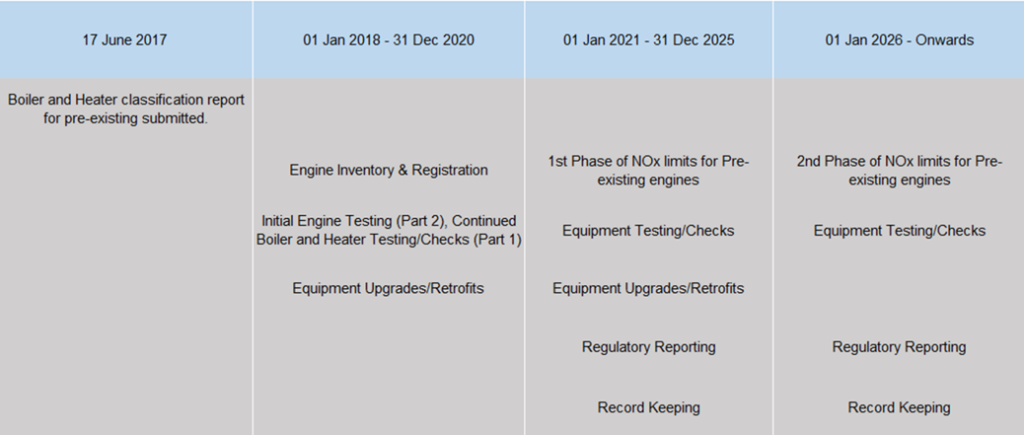With the topic of emissions being so evident in the news, politics, and social media, it is very important for companies to understand where they fit into this setting. Today, operating in the upstream Oil and Gas industry now includes programs ensuring governing bodies that a company is managing its facilities in a proactive emission reduction mentality.
Currently, there are a variety of programs that are required to be developed, implemented, and reported on for oil and gas companies. The following all require attention from industry to meet specific requirements and deadlines: “National Pollutant Release Inventory,” “Multi-Sector Air Pollutants Regulations,” “Environment and Climate Change Canada Reporting of Greenhouse Gases,” “Saskatchewan Oil and Gas Emissions Management Regulations,” “Alberta’s Methane Reduction Retrofit Compliance Plan,” and “Fugitive Emissions Management Program.”

It is paramount that a company understands the high-level requirements and necessary targets prior to making any business decision and/or deciding on how to get these programs integrated. This paper highlights a presentation that Intricate Group has developed for companies to integrate a high-level understanding of these topics:
- Alberta Methane Reduction Requirements
- Saskatchewan GHG Emission Reduction Requirements
- Environment and Climate Change Canada (ECCC) Requirements
- National Pollutant Release Inventory (NPRI) Reporting
- Multi Sector Air Pollutants Regulations (MSAPR)
- Building Blocks to Accurate Emissions Reporting
- Effective Management Solutions
Alberta AER Directive 060: Upstream Petroleum Industry Flaring, Incinerating, and Venting:
- January 1, 2020: Methane reduction retrofit compliance plan (MRRCP) is required for existing equipment
- January 1, 2023: Target date to meet new vent gas limits
- The MRRCP:
- Used to manage the replacement or retrofitting of existing equipment
- Must be updated annually to reflect progress until January 1, 2023
- Executive must approve in writing
- June 1, 2020: Complete annual methane reporting (for 2019 calendar year)
Alberta AER Directive 060: Upstream Petroleum Industry Flaring, Incinerating, and Venting (Supplemented by Manual 016):
- January 1, 2020: Must have a documented Fugitive Emissions Management Program (FEMP).
- FEMP:
- Requires a program manual
- Program designed to ensure reduction of fugitive emissions
- Must identify which individual is accountable (title and contact information)
- Fugitive emissions surveys are required at a facility level (Annually or tri-annually)
- Fugitive emissions screenings are required at a well level
- June 1, 2020: Combines with annual methane reporting (for 2019 calendar year)

AER Emissions Management Timeline:
Saskatchewan Oil and Gas Emissions Management Regulations (OGEMR) Timeline Supplemented by Guideline PNG037:
- January 1, 2019: OGEMR in effect
- September 1, 2019: ERP (emissions reduction plan) due if combined potential emission is >50,000 tonnes of CO2e/year
- Potential emission calculated by MER based on gov’t data (Petrinex / IRIS reporting information)
- ERP (Emissions Reduction Plan):
- Ensures compliance with provincial reduction targets
- Submitted for approval through IRIS
- Required approval by MER
- March 31, 2020: Final annual emissions calculations are completed
Note: Saskatchewan’s emission reduction requirements are written to be more general (in comparison to Alberta) and still waiting on federal approval
Environment and Climate Change Canada (ECCC) Reporting of Greenhouse Gases:
- ECCC (Environment and Climate Change Canada) originally developed GHG (Greenhouse Gas) reporting program in 2004
- In 2017, ECCC expanded the program requiring additional data
- Compliance with the reporting of GHG is a mandatory annual program
- Assessment of GHG at field facilities determines program qualification
- All facilities emitting >10 000 tonnes in carbon dioxide equivalent units/year are required to submit a report
- Reports are required to be submitted by June 1st of each year, for the previous year
National Pollutant Release Inventory Qualifying Criteria for Reporting:
- NPRI is Canada’s legislated, publicly accessible inventory of pollutant releases
- Owners / Operators prepare a complete inventory of pollutant release quantities, and report emission sources to NPRI where thresholds are exceeded
- Reporting is mandatory for facilities such as:
- Where employees work a total of ≥ 20,000 hours / year
- From the Oil & Gas sector that meet specified CAC (Criteria Air Contaminants) thresholds (eg: >20 tonnes of CO)
- Reports are required to be submitted by June 1st of each year, for the previous year
Multi Sector Air Pollutants Regulations (MSAPR):
- June 17, 2016: MSAPR in effect
- NOx equipment associated:
- Boilers and heaters used to generate heat and steam
- Stationary engines used for compression, power generation, and pumping
- June 17, 2017: First classification report was due for burners and heaters
- January 1, 2019: Stationary spark ignition engines were to be registered
- Initial performance testing and subsequent performance checks to follow equipment registration

MSAPR Implementation Plan Timeline

Building Blocks to Accurate Emissions Reporting
Effective Management Solutions:
- Review of equipment inventories and management of change process
- Review of FFV (fuel flare vent) data management and reporting practices
- Review of volumetric measurement & reporting compliance
- Develop required plan(s) as set out by the associated requirement(s)
- Assess / implement business needs (i.e.: tools (spreadsheets, software, processes, training, resources, etc.)
- Complete equipment field data gathering activities
- Update plan(s) to facilitate changes identified during data gathering
- Complete program activities (surveys, screenings, retrofits, repairs, etc.)
- Track applicable data for program (frequencies, limits, reductions, etc.)
- Annual reporting
- Continual improvement
Upon review of this presentation, it is clear there are plenty of requirements and timelines to understand and meet. In order for a company to begin to develop these plans and report, the same principals are required for each program.
The foundation of these programs is a strong data collection and management program. It is important that the data collection and management program is rooted in a company’s operations and business processes. Without it, the reporting assurance through the multiple programs will cause inconsistencies from year to year. Thus proper planning, with a quality service provider that has the experience and knowledge of efficient and effective data gathering and management is a necessity in undertaking this endeavor. Intricate Group has years of experience with data collection, data management, program development, and reporting. Intricate should be a company’s first call to ensure that your emissions requirements are being managed properly and effectively.
About the Author
Richard Boscher is a Measurement Specialist and Journeyman Instrument Technician at Intricate; a Canadian energy services provider. Richard has been working in Industry for 24 years both as a service provider and as an employee for major producers as a Measurement Coordinator/Specialist.

